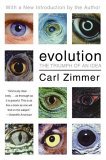Student post submitted by Stephanie Chow.
Ted Peters discussed the topic of stem cell controversy at Wednesday’s ethics lecture. He brought a surprising amount of information about both sides of the debate. [I felt he was a little heavy on the pro-stem cell usage side, but he admitted that he was personally still on the fence for the issue.] A summary of what he discussed:
Regenerative medicine has the potential to offset diseases such as Parkinson’s disease, Alzheimer’s, and multiple sclerosis. This can be achieved using undifferentiated stem cells. These cells are obtained as blastocysts from fertilized eggs are broken apart. Most of the stem cells used in research come from fertility clinics. When women undergo fertility treatments, they fertilize several of their eggs at once. They use one or two at a time, and the rest are frozen. If that single treatment becomes a successful pregnancy, the woman often decides that they do not need the other eggs. Rather than be discarded, these fertilized eggs are used in research.
There are several ethical arguments against the use of stem cells. One is the embryo protection reason. Roman Catholics have taken the stance that scientists should not take apart the blastocyst to get stem cells. They feel that once an egg is fertilized (and is a zygote at that point), it has dignity because it has a soul. In other words, each unique genome correlates with a unique soul. The “14-day position” is another argument used within embryo protection. After 14 days, the fertilized egg adheres to the uterine wall and develops the primitive streak (the first stage of backbone development). Other religious groups used the 14-day position to explain their feelings towards stem cell usage.
Proponents for stem cell research contend that every fertilized egg should not automatically be considered a person. They give the statistic that 60-80% of all fertilized eggs are flushed from the woman’s body, known as fetal wastage. There is also the circumstance of chimerism, when two fertilized eggs join and a person will end up with extra genome. Stem cell advocates say that situations like these demonstrate that not every fertilized egg is a unique, soul-bearing being.













1 comments:
I was glad he mentioned chimeras and twinning. It does provide for an interesting question regarding people who believe the soul begins at conception because as Sam Harris said in his book, "A Letter to a Christian Nation," that would suggest that a Chimera is two souls in one and the type of twinning he discussed would only be a half of a soul per twin. If every cell in a diploid state is capable of giving life, via somatic cell nuclear transfer, then am I condemning millions of lives when I sneeze?
Post a Comment